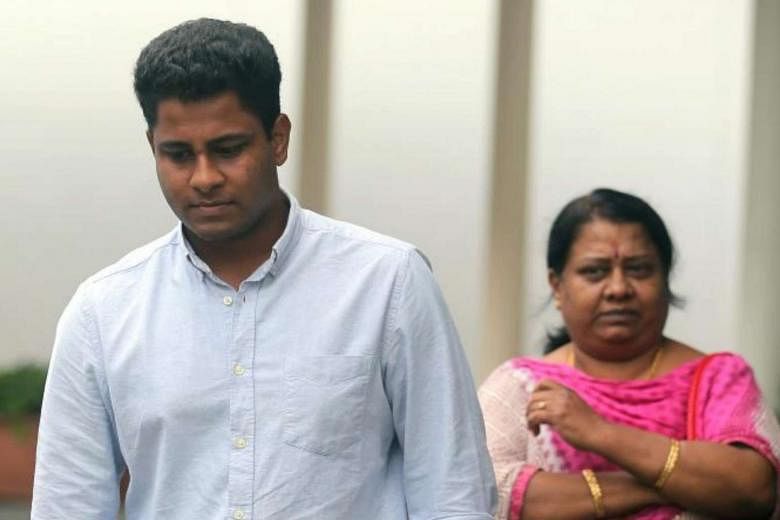SINGAPORE - The High Court has set a new sentencing framework for those who default on their national service obligations, in a written judgment released on Tuesday (July 25) in the case of three men who had evaded service.
A three-judge panel set out four bands based on the length of the period of default:
- For those who evade NS for two to six years, the starting point is two to four months' jail
- For seven to 10 years, the starting point is five to eight months' jail
- For 11 to 16 years, the starting point is 14 to 22 months' jail
- For 17 to 23 years or more, the starting point is two to three years' jail.
The judgment outlines the decision by Chief Justice Sundaresh Menon, Judge of Appeal Chao Hick Tin and Justice See Kee Oon in allowing the prosecution's appeal for heavier sentences against a trio who defaulted on their NS obligations.
In April, the court sentenced Ang Lee Thye, 43, who evaded NS for 23½ years, for two years and nine months. He was 41 when he returned to Singapore from the United States and was therefore no longer subjected to the Enlistment Act.
Sakthikanesh Chidambaram, 26, who evaded NS for five years, six months and 17 days, was jailed for 10 weeks, up from three weeks. His brother, Vandana Kumar Chidambaram, 23, who evaded NS for three years, four months and two days, was jailed for seven weeks. His initial sentence was a $6,000 fine.
Both brothers completed full-time NS last year.
In the written judgment, the judges said that in general, a period of default exceeding two years would attract a custodial sentence.
This was because a person who had defaulted on his NS obligations for two years would only commence serving full-time NS when his peers had already completed theirs.
This derogated from the principle of equity which entailed everyone who is required to serve NS to serve at around the same age so that they would all bear similar interruptions to their studies or careers at similar stages of their lives, said the court.
The court said the statutory maximum sentence of three years' jail should be the starting point for the "worst category" of NS defaulters whose period of default was around 23 years or more, as they would not only have evaded the whole of their full-time NS obligations, but also their reservist obligations.
In between the two ends of the custodial range would be those who, by reason of their default, had impaired their ability to serve their NS obligations, either in terms of their physical ability or in terms of duration.
The rate of increase in sentence should be amplified with longer periods of default, to reflect the decline in a person's physical fitness with age (and hence his ability to serve NS especially in a combat vocation), and to create a progressive disincentive for NS defaulters to delay their return to resolve their offences.
The court said that in addition, there should be a spike in the sentence to be meted out to an NS defaulter once his period of default crosses the 10-year mark, since he would unlikely be able to serve his reservist obligations in full before he reaches the statutory age of 40.
The new framework, in some aspects, is more onerous than another set of guidelines set in February last year bv Justice Chan Seng Onn in a case involving Brian Joseph Chow, a 25-year-old man who left Singapore at the age of 14 to study in Australia and evaded enlistment for more than six years.
Chow was jailed in February last year for 1½ months, after an appeal by the prosecution against his original sentence of just a $4,500 fine.
In sentencing Chow, Justice Chan had issued detailed sentencing guidelines with the help of a graph, ruling that jail time was warranted for those who have a "substantial connection" to Singapore but evade NS by remaining overseas for more than two years.


